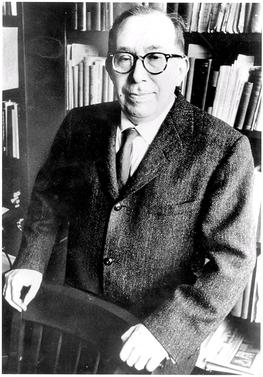
Leo Strauss was an American scholar of political philosophy. Born in Germany to Jewish parents, Strauss later emigrated from Germany to the United States. He spent much of his career as a professor of political science at the University of Chicago, where he taught several generations of students and published fifteen books.
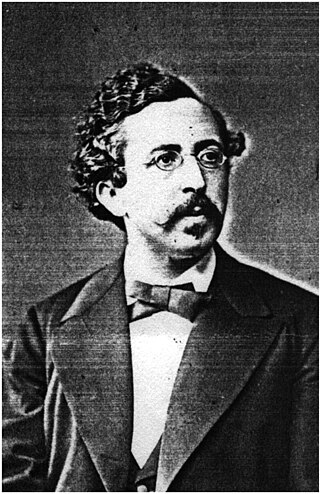
Hermann Cohen was a German Jewish philosopher, one of the founders of the Marburg school of neo-Kantianism, and he is often held to be "probably the most important Jewish philosopher of the nineteenth century".

Persecution and the Art of Writing, published in 1952 by the Free Press, is a book of collected articles written by Leo Strauss. The book contains five previously published essays, many of which were significantly altered by Strauss from their original publication:
- Introduction
- Persecution and the Art of Writing
- The Literary Character of the Guide to the Perplexed
- The Law of Reason in the Kuzari
- How to Study Spinoza's Theologico-Political Treatise
Academic study of Jewish mysticism, especially since Gershom Scholem's Major Trends in Jewish Mysticism (1941), draws distinctions between different forms of mysticism which were practiced in different eras of Jewish history. Of these, Kabbalah, which emerged in 12th-century southwestern Europe, is the most well known, but it is not the only typological form, nor was it the first form which emerged. Among the previous forms were Merkabah mysticism, and Ashkenazi Hasidim around the time of the emergence of Kabbalah.
Jewish studies is an academic discipline centered on the study of Jews and Judaism. Jewish studies is interdisciplinary and combines aspects of history, Middle Eastern studies, Asian studies, Oriental studies, religious studies, archeology, sociology, languages, political science, area studies, women's studies, and ethnic studies. Jewish studies as a distinct field is mainly present at colleges and universities in North America.

David Novak, is a Jewish theologian, ethicist, and scholar of Jewish philosophy and law (Halakha). He is an ordained Conservative rabbi and holds the J. Richard and Dorothy Shiff Chair of Jewish Studies as Professor of the Study of Religion and Professor of Philosophy at the University of Toronto since 1997. His areas of interest are Jewish theology, Jewish ethics and biomedical ethics, political theory, and Jewish-Christian relations.
This is a list of books by Jacob Neusner. Articles, reviews, etc. are not included here.
Jacob Taubes was a sociologist of religion, philosopher, and scholar of Judaism.
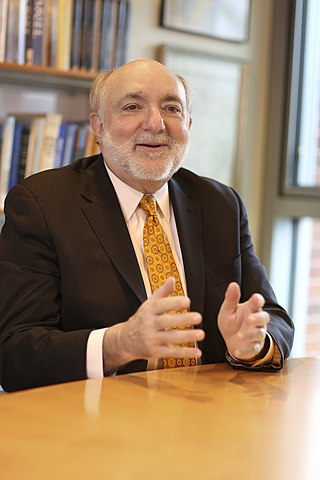
David Ellenson was an American rabbi and academic who was known as a leader of the Reform movement in Judaism. Ellenson was director of the Schusterman Center for Israel Studies and visiting professor of Near Eastern and Judaic studies at Brandeis University and previously president of the Hebrew Union College-Jewish Institute of Religion (HUC-JIR). He previously served as president of HUC-JIR from 2001 to December 31, 2013, and was later chancellor emeritus of that college until his death. Ellenson had served as interim president following the death of his successor, Aaron D. Panken until the inauguration of Andrew Rehfeld, the 10th and current President.
Elliot R. Wolfson is a scholar of Jewish studies, comparative mysticism, and the philosophy of religion.

Moshe Halbertal is an Israeli philosopher, professor, and writer, a noted expert on Maimonides, and co-author of the Israeli Army Code of Ethics. He currently holds positions as the John and Golda Cohen Professor of Jewish Thought and Philosophy at the Hebrew University of Jerusalem and Gruss Professor of Law at NYU School of Law. In 2021 he was elected to the American Philosophical Society.
Peter W. Ochs is the Edgar M. Bronfman Professor of Modern Judaic Studies at the University of Virginia, where he has served since 1997. He is an influential thinker whose interests include Jewish philosophy and theology, modern and postmodern philosophical theology, pragmatism, and semiotics. Ochs coined the term "scriptural reasoning" and is the co-founder of the Society for Scriptural Reasoning, which promotes interfaith dialog among Christians, Jews, and Muslims through scriptural study groups. He is also a co-founder of the Children of Abraham Institute, which promotes interfaith study and dialog among members of the Abrahamic religions.
Jacob J. Staub is a rabbi, author and poet. In 1977 he was ordained as a rabbi at the Reconstructionist Rabbinical College. He was Academic Dean of the College from 1989 to 2004, and the editor of the Reconstructionist magazine from 1983 to 1989. In 2009 he was Professor of Jewish Philosophy and Spirituality and Chair of the Department of Medieval Jewish Civilization at the Reconstructionist Rabbinic College. He founded at RRC the first program in Jewish Spiritual Direction at a rabbinical seminary. He has written two books on Gersonides' philosophy of creation and Reconstructionist Judaism. He has written essays on Mordecai Kaplan's thought.
Michael Zank is a German-born American author, specializing in Jewish theology and philosophy.
Shaul Magid is a rabbi, Visiting Professor of Modern Jewish Studies at Harvard Divinity School, and Distinguished Fellow in Jewish Studies at Dartmouth College. From 2004 to 2018, he was a professor of religious studies and the Jay and Jeannie Schottenstein Chair of Jewish Studies in Modern Judaism at Indiana University as well as a senior research fellow at the Shalom Hartman Institute. From 1996 to 2004, he was a professor of Jewish philosophy at the Jewish Theological Seminary of America; he was chair of the Department of Jewish Philosophy from 2000-2004.

David Nirenberg is an American medievalist and intellectual historian. He is the Director and Leon Levy Professor at the Institute for Advanced Study in Princeton, NJ. He previously taught at the University of Chicago, where he was Dean of the Divinity School, and Deborah R. and Edgar D. Jannotta Distinguished Service Professor of Medieval History and the Committee on Social Thought, as well as the former Executive Vice Provost of the University, Dean of the Social Sciences Division, and the founding Roman Family Director of the Neubauer Family Collegium for Culture and Society. He is also appointed to the Department of Romance Languages and Literatures, the Center for Middle Eastern Studies, the Joyce Z. and Jacob Greenberg Center for Jewish Studies.
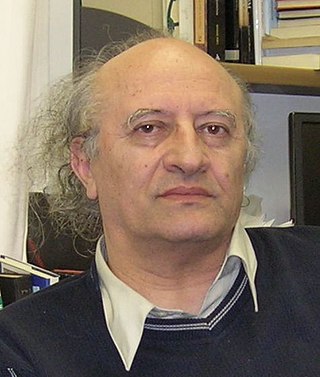
Moshe Idel is a Romanian-born Israeli historian and philosopher of Jewish mysticism. He is Emeritus Max Cooper Professor in Jewish Thought at the Hebrew University, Jerusalem, and a Senior Researcher at the Shalom Hartman Institute.
Zachary Braiterman is an American philosopher, best known for writing on the topics of Holocaust theology, Jewish thought, aesthetics, and Jewish art. He is also a professor of religion at Syracuse University.
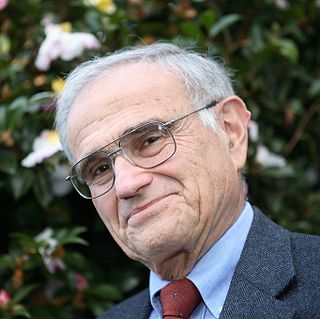
Michael Albert Meyer is a German-born American historian of modern Jewish history. He taught for over 50 years at the Hebrew Union College-Jewish Institute of Religion in Cincinnati, Ohio. He is currently the Adolph S. Ochs Emeritus Professor of Jewish History at that institution. He was one of the founders of the Association for Jewish Studies, and served as its president from 1978–80. He also served as International President of the Leo Baeck Institute from 1992–2013. He has published many books and articles, most notably on the history of German Jews, the origins and history of the Reform movement in Judaism, and Jewish people and faith confronting modernity. He is a three-time National Jewish Book Award winner.
Martin D. Yaffe is an American philosopher and Professor of Philosophy and Religion Studies at the University of North Texas. He is known for his works on the Jewish thought and political philosophy.








